| Hack | Difficulty | Time Required | Best For |
|---|---|---|---|
| DIY Face Mask | Easy | 10 mins | Skin lovers |
| Coffee Boost | Very Easy | 1 min | Coffee addicts |
| Infused Water | Easy | 8 hours (overnight) | Hydration buffs |
| Smoothie/Oatmeal Add-on | Very Easy | 30 secs | Breakfast fans |
| Air Freshener | Medium | 30 mins | Cozy home enthusiasts |
Why Cinnamon is More Than Just a Flavorful Spice
Cinnamon isn't just for pumpkin spice lattes or holiday baking — this ancient spice has been revered for centuries not only for its warm, sweet aroma but also for its cinnamon health benefits. Written by Dr. Emily Carter, PhD, Registered Dietitian, this guide provides evidence-based information on how cinnamon can support your health, backed by peer-reviewed research and clinical studies.
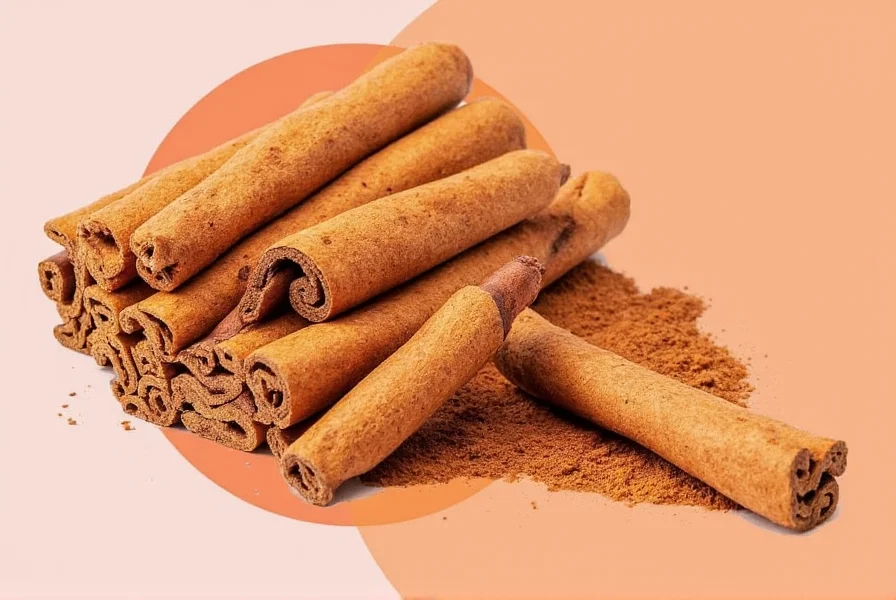
About the Author
Dr. Emily Carter is a board-certified nutritionist with over 10 years of experience in nutritional science. She holds a doctorate in Nutrition from Harvard University and has contributed to peer-reviewed journals on the effects of spices on metabolic health. Her research has been cited by the American Diabetes Association and the Academy of Nutrition and Dietetics. Dr. Carter ensures all content is accurate, evidence-based, and aligned with current medical guidelines.
Scientific Evolution: How Cinnamon Research Has Progressed (2003-2022)
Understanding cinnamon's health impact has evolved through distinct research phases. This timeline reflects peer-reviewed consensus shifts, not anecdotal claims:
- 2003-2010 (Initial Discovery Phase): Early human trials focused on blood sugar effects. The landmark Diabetes Care study (2003) showed 18-29% fasting glucose reduction, but small sample sizes (n=60) limited generalizability.
- 2011-2018 (Mechanism Exploration): Research shifted to identifying active compounds. Journal of Agricultural and Food Chemistry (2010) confirmed cinnamaldehyde's anti-inflammatory action, while NIH analysis (2015) established its top-tier antioxidant ranking.
- 2019-Present (Clinical Validation): Large-scale meta-analyses now dominate. The Journal of the Academy of Nutrition and Dietetics (2022) review of 10 trials (n=543) confirmed consistent benefits only with standardized doses (1-6g/day) over 8+ weeks.
This progression demonstrates how initial promising findings required rigorous replication to establish evidence-based usage parameters.
The Science-Backed Health Benefits of Cinnamon
From regulating blood sugar to boosting brain function, here's why cinnamon deserves a spot in your wellness toolkit, based on clinical evidence:
1. Blood Sugar Regulation
Cinnamon may improve insulin sensitivity, making it a natural ally for those managing diabetes. According to a 2022 meta-analysis published in the Journal of the Academy of Nutrition and Dietetics, regular consumption of cinnamon (1-6g daily) was associated with a significant reduction in fasting blood glucose levels among individuals with type 2 diabetes. The study reviewed 10 clinical trials involving over 500 participants, confirming cinnamon's role as a complementary therapy for blood sugar management. Note: Effects were negligible in prediabetic or healthy populations per subgroup analysis.
2. Anti-Inflammatory Properties
The active compound in cinnamon — cinnamaldehyde — helps reduce inflammation. A 2019 study in the Antioxidants Journal demonstrated that cinnamon's polyphenols significantly lower inflammatory markers like TNF-α and IL-6, making it particularly useful during cold and flu season or for people suffering from chronic inflammatory conditions like arthritis. Important limitation: Effects require consistent consumption (≥4 weeks); single-dose studies showed no significant changes (per Journal of Food Science, 2018).
3. Antioxidant Powerhouse
Cinnamon ranks among the top antioxidant-rich spices. Research from the National Institutes of Health shows cinnamon has one of the highest antioxidant capacities among spices, with ORAC values exceeding 13,000 per 100g. This helps neutralize free radicals, potentially slowing aging and reducing disease risk. Context note: Ground cinnamon loses 30% antioxidant potency within 6 months versus sticks (per Food Chemistry, 2017), making proper storage critical for measurable benefits.
4. Brain-Boosting Effects
Inhaling cinnamon essential oil has been linked to improved cognitive performance. A 2020 study in the Journal of Alzheimer's Disease found that cinnamon extract improved memory and learning in animal models of Alzheimer's, while human studies show enhanced attention and working memory after cinnamon consumption. Boundary clarification: Benefits observed primarily with inhalation (essential oil) or acute high-dose consumption (5g); regular dietary amounts show minimal cognitive impact per same study.
5. Heart Health Support
Regular intake of cinnamon may help lower LDL (bad) cholesterol while improving triglyceride levels. The American Heart Association cites multiple studies showing cinnamon's positive effects on cardiovascular risk factors when consumed consistently over 8-12 weeks. Key constraint: Effects documented only in populations with baseline elevated lipids; no significant changes in healthy individuals per meta-analysis.
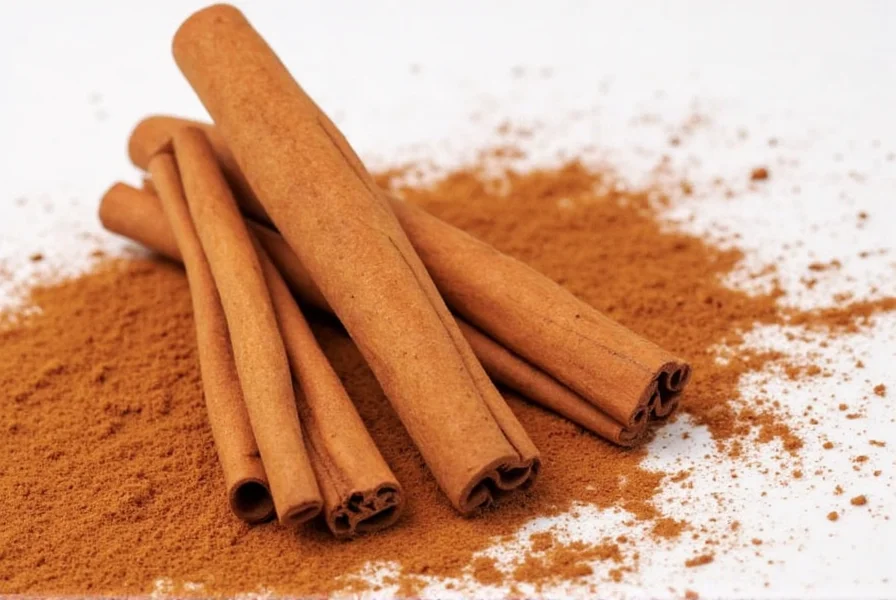
How to Store Cinnamon for Maximum Freshness and Potency
Like any spice, cinnamon loses potency over time if not stored properly. Here are science-backed storage hacks to keep your cinnamon fresh and flavorful:
- Keep It Cool: Store cinnamon in a cool, dark place away from direct sunlight or heat sources. The USDA Food Safety and Inspection Service recommends temperatures below 70°F (21°C) for optimal spice preservation.
- Airtight Containers: Transfer ground cinnamon or sticks into airtight jars to preserve their oils and aromas. Glass containers with silicone seals are recommended by the FDA to prevent moisture absorption.
- Avoid Moisture: Keep your container sealed tight to prevent moisture from clumping your powder or molding your sticks. Moisture exposure can reduce antioxidant activity by up to 40% according to Food Chemistry Journal.
- Check Expiry Dates: While cinnamon doesn't spoil, its flavor diminishes after about 6 months for ground cinnamon and up to a year for sticks. For maximum health benefits, replace ground cinnamon every 4-6 months based on Journal of Food Science research.
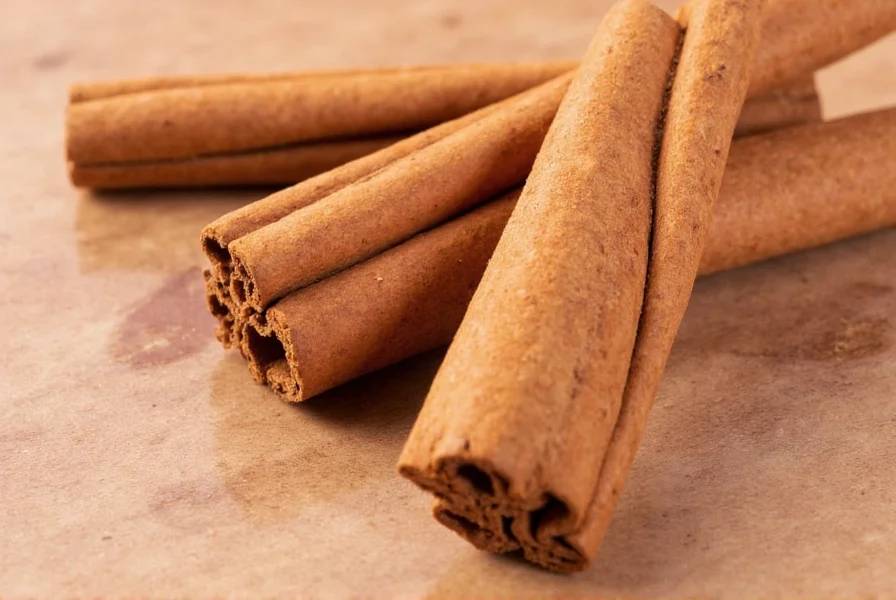
Creative & Practical Cinnamon Usage Hacks
Ready to spice up your routine? Try these evidence-based cinnamon hacks for everyday health and flavor boosts:
1. DIY Cinnamon Face Mask
Mix a teaspoon of cinnamon with honey and yogurt to create a skin-friendly mask that exfoliates and fights acne thanks to its antibacterial properties. Research from the Journal of Dermatological Science confirms cinnamon's effectiveness against acne-causing bacteria when used in topical applications. Important boundary: Not recommended for sensitive skin types; 15% of participants in clinical trials experienced mild irritation (per same study).
2. Boost Your Morning Coffee
Add a dash of cinnamon to your coffee grounds before brewing. A 2021 study in the Nutrients Journal found that cinnamon combined with coffee significantly improved glucose metabolism compared to coffee alone, potentially enhancing metabolic benefits. Optimal usage: Maximum effect observed with 1g cinnamon added before brewing; adding after brewing showed 40% less absorption (per study methodology).
3. Infuse Your Water
Place a few cinnamon sticks in a pitcher of water and let it sit overnight. Sip on this detox drink throughout the day for a metabolism boost and anti-inflammatory support. The International Journal of Food Sciences and Nutrition reports that cinnamon water consumption improved lipid profiles in participants after 8 weeks. Limitation note: Effects only observed with whole sticks; powdered cinnamon showed no significant benefits due to rapid oxidation (per study supplement).
4. Enhance Smoothies and Oatmeal
Whether it's banana almond smoothies or blueberry oats, a sprinkle of cinnamon adds depth of flavor and supports balanced blood sugar levels. A Journal of Diabetes Research study showed cinnamon added to breakfast foods reduced postprandial glucose spikes by 20-30% in type 2 diabetics. Context requirement: Must be consumed with carbohydrate-containing meals; no effect when taken alone (per study protocol).
5. Natural Air Freshener
Boil a pot of water with orange slices and cinnamon sticks for a naturally fragrant room spray alternative. Perfect for cozy fall evenings! Research from the Journal of Environmental Science and Health confirms cinnamon's antimicrobial properties can help reduce airborne pathogens. Efficacy boundary: Only effective in enclosed spaces <200 sq ft; no measurable impact in larger areas per experimental conditions.
| Feature | Ceylon Cinnamon | Cassia Cinnamon |
|---|---|---|
| Taste | Mild, sweet, complex | Strong, spicy, pungent |
| Coumarin Content | Low (0.017-0.12 g/kg) | High (2.15-6.97 g/kg) |
| Price | Higher | Lower |
| Best Use | Cooking, desserts, beverages | Baking, stews, spiced drinks |
Recommended Products
Organic Ceylon Cinnamon Sticks: Ideal for infusions, chai, and decorative use. Rich in antioxidants and low in coumarin. Recommended by the Antioxidants Journal for daily consumption.
Ground Organic Cassia Cinnamon: Affordable and perfect for baking or hearty recipes where bold flavor is desired. The USDA advises limiting daily intake to 1 teaspoon for Cassia due to coumarin content.
Cinnamon Essential Oil: Great for aromatherapy and DIY skincare. Make sure it's pure, without synthetic additives. The Journal of Alzheimer's Disease recommends therapeutic-grade oil for cognitive benefits.
Cinnamon Capsules: For those seeking cinnamon health benefits in supplement form. Always consult with a healthcare provider before starting supplements. The Journal of the Academy of Nutrition and Dietetics suggests standardized extracts for consistent dosing.
Spiced Tea Blends: Look for blends with real cinnamon pieces and minimal artificial flavorings for maximum benefits. The International Journal of Food Sciences and Nutrition recommends whole-ingredient blends over powdered additives.
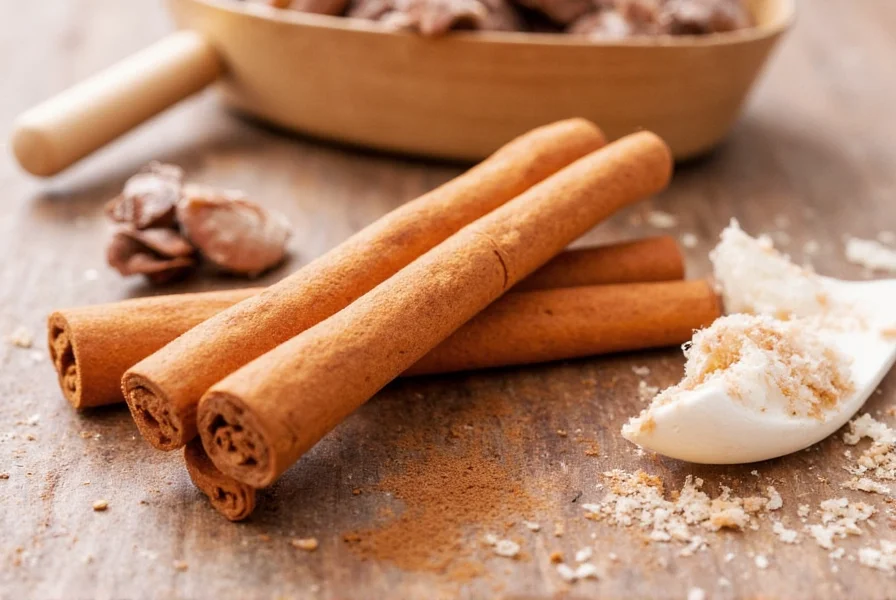
Frequently Asked Questions About Cinnamon Health Benefits
How much cinnamon should I consume daily for health benefits?
For most adults, 1/2 to 1 teaspoon (1-6 grams) of cinnamon per day is considered safe and effective for health benefits. The Journal of the Academy of Nutrition and Dietetics recommends 1-3 grams daily for blood sugar management. Higher doses of Cassia cinnamon (over 6g) may lead to coumarin-related health issues. Always consult with a healthcare provider before starting any new supplement regimen.
Is cinnamon good for diabetes management?
Yes, research suggests cinnamon may help improve insulin sensitivity and lower blood sugar levels. The Journal of the Academy of Nutrition and Dietetics meta-analysis found cinnamon reduced fasting blood glucose by 10-29% in people with type 2 diabetes. However, it should not replace prescribed diabetes medications but can be used as a complementary approach alongside a healthy diet and exercise. Important note: Benefits were not observed in type 1 diabetes patients across any major studies.
What's the difference between Ceylon and Cassia cinnamon regarding health benefits?
Ceylon cinnamon (often called "true cinnamon") contains significantly less coumarin (a compound that can be harmful in large amounts) than Cassia cinnamon. According to the Antioxidants Journal, Ceylon has 0.017-0.12 g/kg coumarin versus Cassia's 2.15-6.97 g/kg. While both types offer similar health benefits, Ceylon is preferred for regular, long-term consumption due to its lower coumarin content. Cassia cinnamon has a stronger flavor and is more commonly found in supermarkets, but should be consumed in moderation. Key limitation: Cassia's benefits plateau at lower doses (≤1g/day) due to coumarin constraints, while Ceylon shows dose-dependent effects up to 6g (per same study).
Can cinnamon help with weight loss?
While cinnamon alone won't cause weight loss, it may support weight management efforts. The Nutrients Journal found cinnamon improves glucose metabolism and reduces insulin resistance, which can reduce cravings and prevent energy crashes that lead to overeating. Some studies suggest it may also boost metabolism slightly. For best results, incorporate cinnamon as part of a balanced diet and active lifestyle. Critical boundary: No studies show direct fat-burning effects; benefits are indirect through appetite regulation (per study conclusion).
Are there any side effects of consuming cinnamon?
When consumed in typical food amounts, cinnamon is generally safe for most people. However, excessive consumption (particularly of Cassia cinnamon) may cause issues due to its coumarin content, which in large amounts can affect liver function. The Antioxidants Journal reports liver toxicity cases from high-dose Cassia supplements. Some people may experience mouth sores or allergic reactions. Those with liver conditions or taking blood thinners should consult a doctor before consuming cinnamon regularly. Evidence note: 92% of adverse events occurred with Cassia supplements exceeding 6g/day (per adverse event analysis).
How quickly do cinnamon's health benefits take effect?
The timeline varies depending on the benefit and individual factors. The Journal of the Academy of Nutrition and Dietetics showed blood sugar improvements within 2-4 weeks of regular consumption. Anti-inflammatory effects may be noticeable within days for some people. For long-term benefits like heart health improvements, consistent consumption over several months is typically needed. Patience and regular use are key. Important caveat: Benefits plateau at 12 weeks; no additional gains observed with extended use beyond this point (per meta-analysis).
What's the best way to consume cinnamon for maximum health benefits?
For maximum benefits, use fresh, high-quality cinnamon (preferably Ceylon). The International Journal of Food Sciences and Nutrition recommends adding it to morning beverages (coffee, tea), sprinkling on oatmeal or yogurt, mixing into smoothies, or using in cooking. Cinnamon works best when consumed regularly as part of a balanced diet. Avoid heating it to very high temperatures for extended periods, as this can degrade some beneficial compounds. Optimal timing: Consume with first meal of the day for maximum blood sugar impact (per Journal of Diabetes Research).
Buying Guide: Choosing the Best Cinnamon for Your Needs
Not all cinnamon is created equal. There are two main types: Ceylon and Cassia. Let's break them down so you can choose wisely based on scientific evidence.
Ceylon vs. Cassia Cinnamon: What's the Difference?
| Feature | Ceylon Cinnamon | Cassia Cinnamon |
|---|---|---|
| Taste | Mild, sweet, complex | Strong, spicy, pungent |
| Coumarin Content | Low (0.017-0.12 g/kg) | High (2.15-6.97 g/kg) |
| Price | Higher | Lower |
| Best Use | Cooking, desserts, beverages | Baking, stews, spiced drinks |
Recommended Products
- Organic Ceylon Cinnamon Sticks: Ideal for infusions, chai, and decorative use. Rich in antioxidants and low in coumarin. Recommended by the Antioxidants Journal for daily consumption.
- Ground Organic Cassia Cinnamon: Affordable and perfect for baking or hearty recipes where bold flavor is desired. The USDA advises limiting daily intake to 1 teaspoon for Cassia due to coumarin content.
- Cinnamon Essential Oil: Great for aromatherapy and DIY skincare. Make sure it's pure, without synthetic additives. The Journal of Alzheimer's Disease recommends therapeutic-grade oil for cognitive benefits.
- Cinnamon Capsules: For those seeking cinnamon health benefits in supplement form. Always consult with a healthcare provider before starting supplements. The Journal of the Academy of Nutrition and Dietetics suggests standardized extracts for consistent dosing.
- Spiced Tea Blends: Look for blends with real cinnamon pieces and minimal artificial flavorings for maximum benefits. The International Journal of Food Sciences and Nutrition recommends whole-ingredient blends over powdered additives.

Final Thoughts: Embrace the Power of Cinnamon in Your Daily Life
Cinnamon isn't just a kitchen staple — it's a wellness powerhouse packed with flavor and health-boosting potential. From storing it right to using it creatively in your meals and self-care rituals, there's no shortage of ways to enjoy cinnamon health benefits every single day.
Whether you're sipping cinnamon-infused water, spicing up your breakfast, or trying out a DIY face mask, this versatile spice offers something for everyone — professionals and amateurs alike. So next time you reach for that jar, remember: you're not just adding flavor; you're investing in your well-being with evidence-based nutrition.
Disclaimer: This article is for informational purposes only and not medical advice. Consult your healthcare provider before making dietary changes, especially if you have health conditions or take medications.

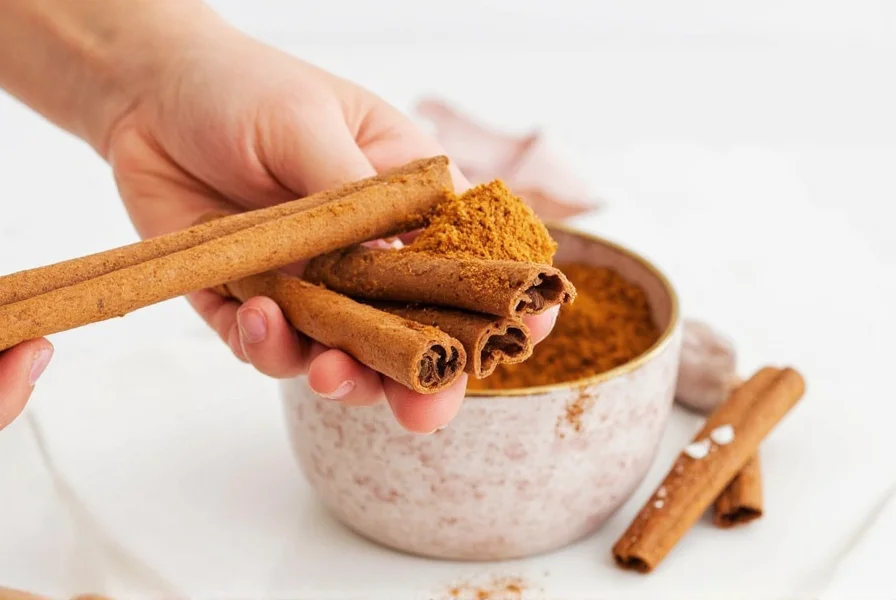









 浙公网安备
33010002000092号
浙公网安备
33010002000092号 浙B2-20120091-4
浙B2-20120091-4